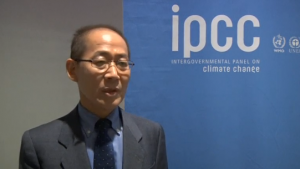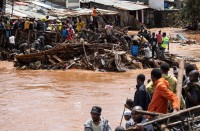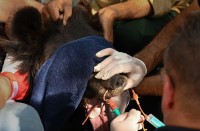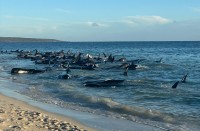
(Reuters) — Global warming has not paused, but more research is needed to understand the level that might cause tipping points or irreversible damage to the earth’s climate system, the chair of the U.N. panel of climate scientists told Reuters on Tuesday (December 8).
In 2013, the panel reported a slowdown or “hiatus” in warming since about 1998, despite rising man-made emissions of greenhouse gases, heartening skeptics who said the risks of climate change had been exaggerated. However, more recent research by the U.S. National Oceanic and Atmospheric Administration (NOAA) has suggested this hiatus is an illusion
“There is no hiatus (in global warming). And the multiple lines of evidence suggest that the earth is warming,” said Hoesung Lee, the 69-year-old South Korean economics professor named chair of the U.N. Intergovernmental Panel on Climate Change (IPCC) in October.
“For instance, the atmospheric concentration of CO2 is rising, sea levels have been rising and the temperature of the ocean has also been rising,” he said in an interview. “The important point is we need to look at the trend, not just one year of data.”
But Lee, attending the U.N. climate summit in Paris, said more work was needed, based on a number of years of observations, to establish a “clear understanding of the relationship between carbon emissions and economic growth”.
Lee will oversee the next cycle of reports from the IPCC, whose most recent findings in 2013-14 concluded that global warming meant risks of “severe, pervasive and irreversible impacts”.
He said more study was also needed to understand the importance of tipping points, where, for instance, ice melt becomes irreversible.
Any deal done in Paris is almost certain to fall short of a U.N. goal of limiting global temperature rise to below 2 degrees Celsius (3.6 Fahrenheit), which many scientists see as the threshold for avoiding dangerous climate change.
Some countries that are more vulnerable to global warming, such as low-lying island nations, say the temperature rise needs to be limited even further, to 1.5 C (2.7 F).







